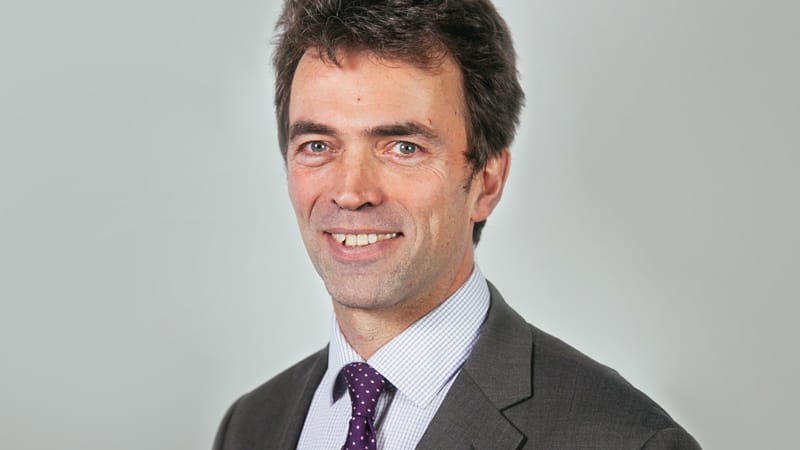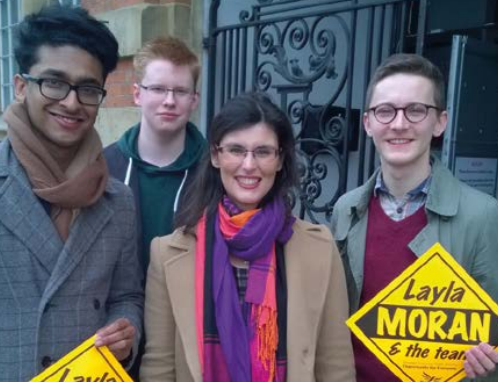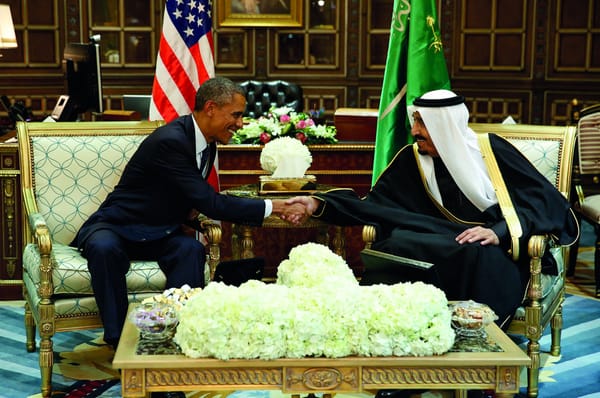Imperial Alumni in Politics: Tom Brake
Plabon Saha interviews the Liberal Democrat member of parliament for Carshalton and Wallington, Tom Brake

Tom Brake has been a MP for Carshalton and Wallington since 1997. In this parliament he has served as the Deputy Leader of the House of Commons and assistant whip for the Liberal Democrats. Tom graduated from Imperial in 1983 and recently returned to campus in an event hosted by the Imperial Liberal Democrats.
Plabon: How did you get into politics?
Tom: I got into politics through an interest I had in the early eighties, particularly in the environment. Having lived in France, I was committed to developing a relationship with our European partners and further involved myself in politics as a reaction to what was happening politically in the early eighties when Margaret Thatcher was Prime Minister. She effectively polarised the country and I was very much working to try to unseat her.
Plabon: You have been in Parliament for almost two decades now. What is your greatest achievement in Westminster?
Tom: For a Liberal Democrat, retaining your seat is always a good achievement. So having been elected for the first time in 1997, then again 2001, 2005 and 2010, that’s a pretty good track record. I’m pleased that we have fought a number of campaigns to safeguard the future of my constituent’s A&E and Maternity units in our local hospital and hope that in the next Parliament I will have the chance to finally secure the long-term future of our hospital, which is desperately needed in the local community.
Plabon: You have campaigned for better transport in London in the past and you frequently cycle. Do you think we have issues with safety for cyclists in London and would you support a second superhighway?
Tom: There are very significant safety issues for cyclists in London and beyond, and part of it is down to a cultural issue. If you look at countries like Holland and Denmark, drivers and cyclists don’t see each other as ‘them and us’ because drivers are cyclists and cyclists are drivers. The problem in the UK is there is all too often a ‘them and us’ attitude. I’m both a cyclist and a driver so I understand the vulnerabilities of cyclists. I also understand that some cyclists are irresponsible on the roads, but the thing I point out to drivers is that cyclists who are cycling irresponsibly can potentially do themselves great harm whereas a driver who is driving irresponsibly can kill a cyclist. As for the superhighways, I think they’re a mixed blessing; what I would like to see is more properly segregated cycle routes. I’d love to see more people cycling; I think it’s such a fantastic way of getting about: pollution free, good exercise and a really quick way of getting around. We need more segregated cycleways, which is going to take a lot of time. Countries like Holland and Denmark have achieved what they achieved over 20 or 30 years of consistent investment in high-quality cycling infrastructure. They did not achieve that overnight, so there’s got to be a long-term commitment to doing this but I think it’s worth it in terms of health, cutting congestion and just in terms of people’s enjoyment of cycling.
Plabon: There is a lack of scientists in Westminster at the moment. Do you think that scientists are deterred from politics, which tends to be more about putting on a show rather that evidence-based decision making at times?
Tom: I’m sure we can all think of the odd scientist who puts on a very good show on television, so I don’t think scientists are necessarily excluded from those who like the sound of their own voice and can entertain the public, so I don’t think that is the issue. Politics traditionally has drawn a large number of people from the legal profession, and I suppose the reason for that was that historically Parliament sat in the afternoon so the barristers could go to work in the morning. That has changed slightly, although there are still a significant number of barristers who are members of Parliament. I would like to encourage more scientists to come into Parliament because they will bring a different perspective; they will bring a more rational, in my view, approach, or a more methodical, calculated approach to policy than is currently the case where often policy is driven by politics as opposed to the evidence.
Plabon: Is there any way we can encourage more scientists to get into politics?
Tom: Well I hope visiting Imperial today is very much part of that process. It’s important to recognise that you can be a politician no matter what you’ve done previously. You can study physics as I did at university and become a politician. You will bring new ideas, new thoughts and new priorities to Parliament and we need to see continued investment in research and development if we are to grow as a nation, if we are to increase our productivity. Scientists’ knowledge and experience can bring that to bear in Parliament, so I would say that scientists should consider a future in politics as a way of contributing to the country.
Plabon: House prices are soaring in London and generations are being priced out of even renting in certain areas. Do you see the gentrification ever coming to a halt?
Tom: Coincidentally, the Liberal Democrats recently announced a new policy specifically targeted at what is known as ‘Generation Rent’, in other words the group of young people who can just about afford to rent in the private sector, but can’t afford to save up for a deposit that would enable them to get onto the housing ladder. The proposal that we have brought forward called ‘rent to own’ is a policy that would allow young people to rent a property at market rent over a 30 year period and at the end of that 30 year period they would own the property. Or if they stayed in the property for 15 years and then moved on they would have the value that had been built up over 15 years to put down as a deposit on the next property. This is a good policy because it means that people won’t have to save tens of thousands of pounds for a deposit. The downside is that they would continue to pay market rent although if they were unable to buy and they were continuing to rent in the private sector that is what they would be paying in any case. We think this ‘rent to own’ policy has the potential, by the end of the next Parliament, to create something like 30,000 properties a year to be available to young people that would allow them to rent/buy their own property and at the end of those 30 years of paying rent they would acquire that property. It would be theirs.
Plabon: But is it enough?
Tom: No, it isn’t enough; it’s only part of the solution. The total number of properties that we think we need to be built is something like 300,000 properties a year. Obviously there are lots of other things that we can do. In London, for instance, the Mayor has the ability to do what’s called ‘prudential borrowing’ and we think there is scope for doing that because housing is, in effect, an infrastructure investment and that’s the sort of thing that we need to encourage. We need more affordable housing, because there’s no point in building properties that simply end up on the buy-to-let market or get purchased by people in the far east, because there aren’t properties that people can actually afford to rent in most developments. So we need to have affordable rents and we need social housing. We want to see local councils being given the power to build properties, something they’ve not had for many years, as a means of allowing a variety of different organisations to make a contribution to building these new homes that are needed. Without these new homes, we will continue to see the levels of overcrowding that we currently experience in London and we will continue to see people paying very high rents, because the reason the rent is so high is because there’s a shortage of housing. Any private landlord who has a property knows that they can rent it out at a very high price and if the person they rent it to first doesn’t want it, they can always find someone else to rent it to instead. So we need push up supply in the market to push down rental prices and push down property prices.
Plabon: The best-case scenario for the Liberal Democrats in the next election is to get into another coalition with a major party. If the Liberal Democrats fail to get into Government after the 7th of May, do you think the Lib Dems will be brushed aside from frontline politics in the near future?
Tom: Well our ambition of course is to get as many Liberal Democrats elected as possible. If, after the election, we have a significant number of MPs and we’re in a position to enter into a dialogue with the largest party and perhaps form another coalition then clearly we would be interested in that. We think the present government has worked quite effectively with the Liberal Democrats at the centre of it. If we aren’t in a position to do that and we’re a small party with a smaller number of MPs then I’m sure we would go through a process of re-establishing our identity as a party. I think one of the risks, a very clear risk that we knew from the outset that has happened in other countries where smaller parties have been in a coalition, is that the party’s identity gets diluted. So we would want to focus on formulating distinctive Liberal Democrat policies and I’m sure that we would then start to see the party grow, we’d start to gain seats again in local councils and build up our grassroots strength, which is where the party traditionally has developed its strengths from; from the grassroots in local councils.
Plabon: Mental health has been made a big issue by the Liberal Democrats in the upcoming general election. Given that the NHS is already struggling and failing to meet the funding gap, how are the Liberal Democrats proposing to increase funding for mental health? Will it lead to cuts in other areas of the NHS?
Tom: Well, it is clear that most parties (including the Labour party) have accepted that there have to be further budget cuts. We have taken on board what Simon Stevens, who is the boss of NHS England, has said which is that by 2020 the NHS needs to have an extra £8 billion to spend on services to maintain quality. We have said that for us as a party this will be a priority in the next Parliament; to fight for that extra £8bil by 2020 going into the NHS so that the quality of services can be maintained and of course this would enable us to invest in mental health, which I think is a top priority for young people. I think young people are under greater pressure than they have ever been under before and the Liberal Democrats want to see greater investment in mental health issues. We want to see parity of esteem between the treatments that people get for mental health versus treatment people get for physical health. There is no reason why people should not have the same sorts of guarantees about access to mental health treatment as they do if they have a physical health problem, and that is one of the things that the Liberal Democrats in government have been pressing for.
Plabon: If you were not an MP, what would you do?
Tom: Well I’m not envisaging that, but if things go dramatically pear-shaped on May 7th, and fortunately the indications are that they won’t, I’ve often thought that perhaps going back into campaigning on environmental issues is something that would be of great interest to me and I think that’s probably the route I would go down.
Plabon: If you could go back to the Tom Brake in university, what advice would you give him?
Tom: The advice I would give him would be to have more fun. Life at Imperial was challenging in terms of the workload and a pretty hard slog, but I should perhaps have taken more advantage of university life than I did.
Plabon: Jägerbombs, Sambuca or Tequila?
Tom: A glass of red, I’m afraid.
Plabon: Who is your favourite MP?
Tom: As a Liberal Democrat, I cannot say anything other than Nick Clegg, can I? And I can genuinely say that, because of the steel and resilience that he has shown as the leader of the Liberal Democrats, where he has been relentlessly attacked from all sides in the last five years. I don’t think anyone else could have stuck the course. I think he made the right call; we needed to go into coalition. It has given us experience of national governing that we haven’t had in the last 60 years and we’ve had it at a time that has been the most challenging for the country and I think that stands us in very good stead whatever happens after the general election.
Plabon: Who is your least favourite MP?
Tom: There are people who I find incredibly irritating. People like Peter Bone (a Conservative MP), who never misses an opportunity to have a go at the Liberal Democrats. However, I do actually quite like him because when he switches off his antagonism towards the Liberal Democrats and we have a chat in the gym, he’s quite a reasonable bloke. But his persona is incredibly irritating.







